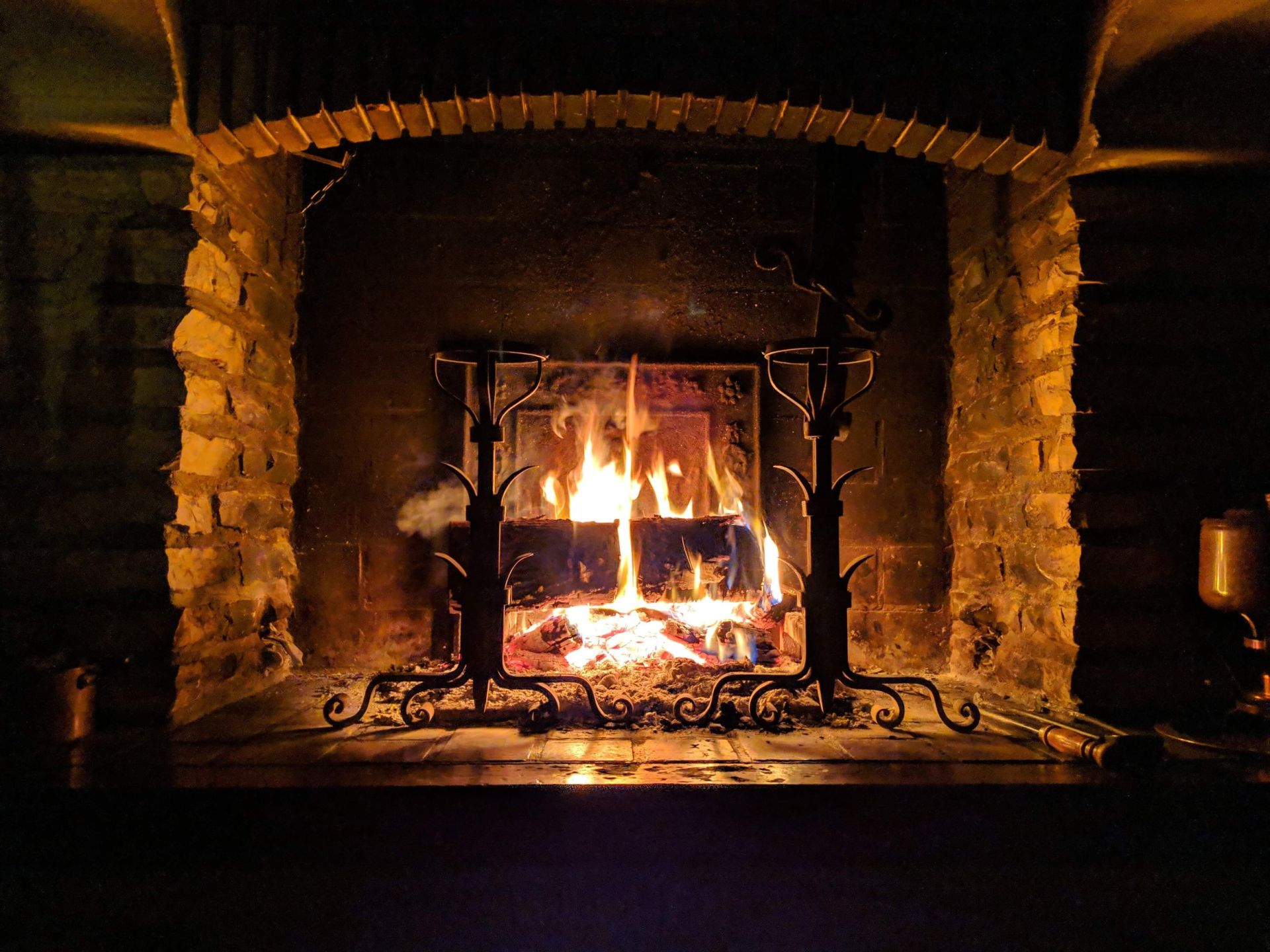Come Home to Yourself
Dec 20
/
Savoy Stevens

Your soul is calling you home.
Come home.
Home to a future once imagined.
Where shelter and shadow meet. Come home,
feel the embrace of the One who is heart and hearth.
Arrive in the warmth and welcome of being fully your own. Home.
Hold the tender in your hands
and fan the flame of heart hearth. Home,
in this moment where you are fully.
Listen. You are home.
At Christmastime, I think a lot about the idea of home. Many of us “go home” for Christmas, and if we don’t, we prepare our home, or visit the home of another. We consider how the mysterious Divine Word made a home in the world in wiggly human flesh. To be at home is to have a sense of connection, belonging, acceptance and safety. As Yi-Fu Tuan, originator of the field of human geography notes, this sense emanates from a place of intimacy and acceptance. “Hearth, shelter, home or home base are intimate places to human beings everywhere” and ultimately stems from an inner self confidence, a sense of “coming home to one’s self.”[1] That at the core of who you are, you are connected, you belong, you are accepted, and you are safe.
The nature of the soul is in union with the Divine. This is the most intimate of all relationships — a true knowing and being known. From this source, we are ultimately and eternally connected — to ourselves, each other, and God, included in the community that is all of creation. We are accepted as beloved of God, and are safe in the mysterious knowing that regardless of what happens, our original and final birthright is union with God.
For Spiritual Directors, much of our work is nurturing this sense of “home” for others, so they in turn can come home to themselves and home to God. Henri Nouwen reminds us that “God has given each of us a beautiful self. There God dwells (is at home) and loves you with the first love.”[2] When we cultivate a sense of connection, belonging, acceptance, and safety within ourselves, we are able to invite others home to their own heart hearth. This has everything to do with one’s own sense of self and sense of God, so our inner work to come home to ourselves is paramount.
To “come home,” to union with God is a lifelong journey and some would say that between our birth and our death, we are all just “walking each other home.” This expresses the collective awareness, that whether housed or unhoused, rich or poor, black, brown, or white, indigenous or transplant, desert dweller or mountain dweller, in the city or the country - there is something common to the human experience that longs for and seeks an earthly and transcendent sense of “home.” Wrapped up in this is one’s sense of self, sense of connectedness to something greater, sense of belonging, sense of acceptance and sense of safety. These human needs layer atop the material sense of place (or even places) to develop a feeling of what it means to be home or at home.
The version of the Christmas story in the Gospel of John, simply reminds us that the mysterious, eternal, divine Word finds a home—that is “abides” “inhabits” “pitches a tent” in us among us, and for us. It is in this sense of home that the ordinary and the transcendent meet. We are at once at home in the world, and yet long for an eternal home. Something beyond this life. We are (ultimately) at home within ourselves, yet constantly reaching for those things outside of ourselves that make us feel connected, a part of something, accepted, protected - including God.
Though the earth was given as a home to us all, by the ultimate homemaker, co-homemakers become home breakers when the powers of money, race, gender, ability, etc. dictate who does and does not have access to home. “Home should be where you have a sense of security and permanence.”[3] Ultimately, this stems from our deep sense of home within ourselves in intimate relationship with God. For it is with and through this dynamic that we sense our eternally connectedness - to ourselves, each other, and God. In addition, we know that we are included in the community that is all of creation, rest in our acceptance as beloved of God, and revel in the safety and mystery of knowing that regardless of what happens, our true home is with God. When we are able to truly “come home to one’s self” we are at home anywhere and we are better companions for those we are “walking home.”
Notes:
[1] Yi-Fu Tuan, Space and Place : The Perspective of Experience, University of Minnesota Press, 1979.
[2] Nouwen, Henri J. M. The Inner Voice of Love : A Journey through Anguish to Freedom. 1st ed. New York: Doubleday, 1996.
[3] Bouma-Prediger Steven and Walsh Brian J., Beyond Homelessness: Christian Faith in a Culture of Displacement (Kindle Location 1052). Kindle Edition.

Savoy Stevens
Savoy Stevens, M.Div. is a spiritual director and minister in the Bay Area. She holds a Master’s of Divinity, with a concentration in Spiritual Formation from Portland Seminary and was trained, supervised, and certified as a spiritual director through George Fox University. Her postgraduate coursework includes Interfaith Studies at the University of Wales, Trinity Saint David. Savoy practices spiritual direction from an ecumenical, non-denominational perspective, welcoming directees from all faith traditions. She approaches direction sessions with curiosity and acceptance, listening deeply for the resonance of the Divine in the grit of everyday life. She asks questions and offers her undivided attention as a reflective tool for increasing your sense of the Divine. She considers spiritual direction a radical act of resistance in a culture consumed with certainty, overexposure, and noise.
Savoy Stevens, M.Div. is a spiritual director and minister in the Bay Area. She holds a Master’s of Divinity, with a concentration in Spiritual Formation from Portland Seminary and was trained, supervised, and certified as a spiritual director through George Fox University. Her postgraduate coursework includes Interfaith Studies at the University of Wales, Trinity Saint David. Savoy practices spiritual direction from an ecumenical, non-denominational perspective, welcoming directees from all faith traditions. She approaches direction sessions with curiosity and acceptance, listening deeply for the resonance of the Divine in the grit of everyday life. She asks questions and offers her undivided attention as a reflective tool for increasing your sense of the Divine. She considers spiritual direction a radical act of resistance in a culture consumed with certainty, overexposure, and noise.

